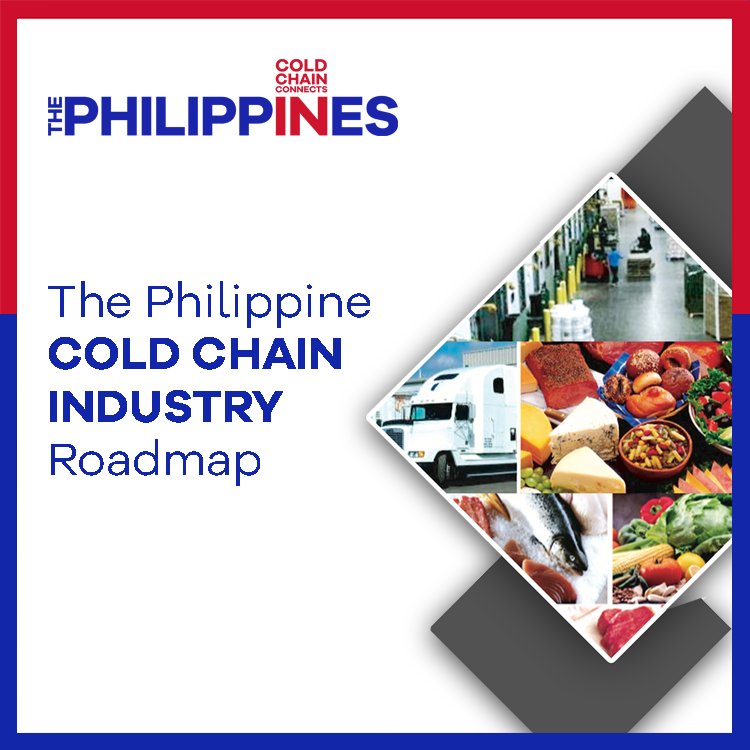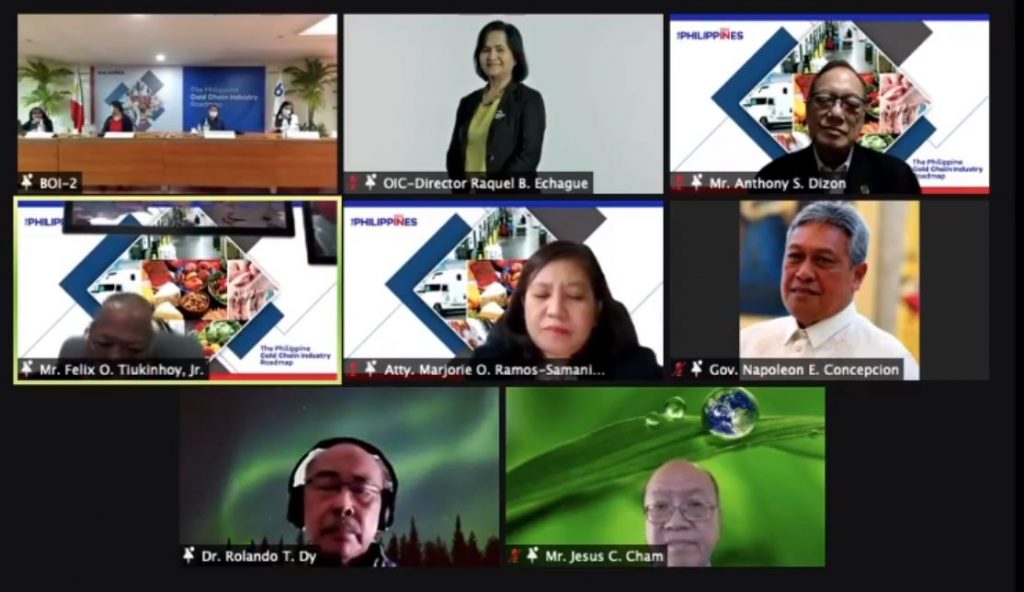The Board of Investments (BOI) and its partner industry stakeholders recently (14 December 2020) launched the Cold Chain Industry Roadmap, expecting to flourish as it plays a critical role in maintaining the safety and efficacy of the COVID-19 vaccines.

The Cold Chain Industry Roadmap lays down the blueprint for industry expansion towards the “new normal” adept in coping with health emergencies. “Now that several vaccines have been given emergency approvals around the world, we are expecting that these vaccines would be made available in the country at the soonest possible time. As such, we have to prep our industry for the nationwide distribution of the vaccines that require certain temperatures,” Trade Undersecretary and BOI Managing Head Ceferino Rodolfo said.
“This pandemic has heightened the need for a more developed cold chain logistics system to ensure the stable supply of essential food products by prolonging shelf-life, preventing food wastage, building raw materials inventory, and likewise paving the way for higher value-added processing. Additionally, once the vaccines are approved and scheduled for distribution here, the industry will have to be ready,” he added.
Agriculture Undersecretary Zamzamin Ampatuan expressed anticipation of seeing the Cold Chain Industry Roadmap in place as it enables the government to address issues brought about by the current pandemic. “The Roadmap details the cold chain and logistics requirement of the agri-fisheries sector and the government can thus have a better handle of the tasks such that connectivity to the cold chain industry will be addressed. With this, we are confident to achieve results in 3 years, more so in the longer term,” Undersecretary Ampatuan said.
BOI Governor Marjorie Ramos-Samaniego, BOI Composite Team Lead for the Cold Chain Industry Roadmap, noted that “while the pandemic has caused several supply chain disruptions, we all have increased appreciation of the significance of the cold chain industry in COVID-proofing food supply systems and making it more resilient. Moving forward, this pandemic has opened several opportunities for our local stakeholders which can be fully exploited through this Roadmap.”

According to Mr. Anthony Dizon, President of the Cold Chain Association of the Philippines, Inc. (CCAP), the local cold chain industry’s initial plan is to utilize a hub-and-spoke approach for the storage and distribution of the vaccines. While it is true that cold chain storage facilities are concentrated in urban areas, distribution will be facilitated by temperature-controlled cold chain logistics operators. But before finalizing the plan, the local industry is awaiting final advice from the government as to which vaccine it intends to procure so they can re-assess local cold storage and distribution capability. “There needs to be an extensive study to make sure that the supply chain facilities are available to complete the vaccine distribution cycle,” Mr. Dizon added.
Mr. Dizon emphasized that while the growth potential remains positive, the success of the cold chain industry hinges on food supply. CCAP looks forward to a closer collaboration with DA and the Department of Trade and Industry on the production and processing of food products for the market.
A National Cold Chain Committee will be created following the launch of the Roadmap. The Committee will implement and monitor programs on the five focus industries of the roadmap, namely: meat/processed meat, fisheries and aquaculture, dairy, fruits and vegetables, and non-food such as pharmaceuticals and electronics. These would include the promotion of investments in the cold chain in key geographic areas to increase food security and safety in times of supply-disrupting events such as the COVID-19 pandemic.
With the support of all the stakeholders, the roadmap is fit to face the challenges of the “new normal”. It is made flexible to anticipate shifts in future business models and regulations. It also adopts a ‘whole-of-nation’ approach in devising strategies to implement the Action Plans,” Undersecretary Rodolfo explained.
Mr. Felix Tiukinhoy, President of the Philippine Association of Meat Processors, Inc. (PAMPI) expressed full support to this initiative of the BOI in formulating an all-inclusive cold chain industry roadmap. Mr. Tiukinhoy stated that the roadmap is timely and necessary as it addresses the growing needs of the food and other sectors, and sets a clearer direction for investors who will want to engage in cold storage and logistics business.
The Meat Importers and Traders Association (MITA) President Jesus Cham stated that the roadmap is a noble undertaking that everyone should support while emphasizing the importance of informing and educating consumers and regulators on the importance of refrigeration in food security, food safety, food affordability, and economic growth.
The Roadmap, crafted by consultants Dr. Rolando Dy and Florencia Sevilla from the University of Asia and the Pacific (UAP), states that “the industry is well-positioned for post-COVID-19 recovery. Food spending will continue its upward trajectory (as food accounts for over 40 percent of average household spending)”. With the roadmap’s mission to establish a collaborative network of cold chain stakeholders that will cater to both food and non-food industries, the industry is expected to handle the increasing and heightened sophistication of needs by our industries to be more competitive and be able to serve the requirements of a growing population.
Market estimates of the global cold chain market are placed at USD 168B in 2018 and are projected to expand at an annual growth rate of 15% until 2025. The Philippine cold chain industry revenues, on the other hand, are expected to reach P20B by end of 2023. This figure is expected to be higher with the new demand for the storage of vaccines that the country would be importing next year to fight the virus.♦
Date of Release: 12 January 2021



